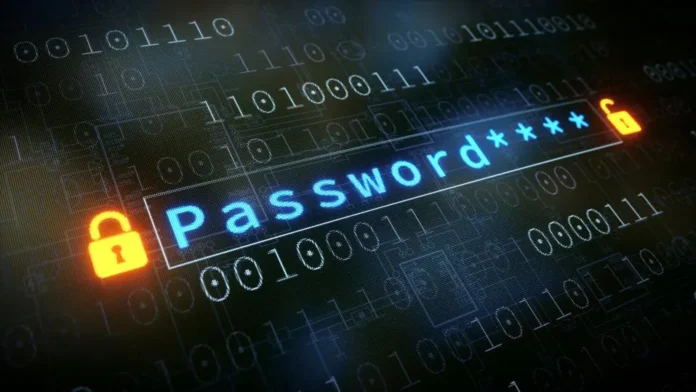In a shocking turn of events, Google passwords leaked in what cybersecurity experts are calling the largest data breach in history. On June 19, 2025, researchers revealed that over 16 billion login credentials, including those for Google, Apple, and Facebook, surfaced online. This unprecedented exposure has sent ripples of panic through internet users worldwide, prompting urgent calls to bolster online security. With hackers gaining access to sensitive accounts, the implications are dire. Let’s dive into the latest developments surrounding this massive breach and what you need to do to protect yourself.
What Happened in the Google Passwords Leak?
The breach, uncovered by cybersecurity researchers, involves a staggering 16 billion login credentials stolen from major platforms, including Google. Unlike a single hack targeting one company, this leak compiles data from multiple sources, primarily through infostealer malware. These malicious programs quietly siphon usernames, passwords, and other sensitive details from infected devices. The exposed datasets, described as a “blueprint for mass exploitation,” include logins for social media, VPNs, developer portals, and even government services.
The leak’s scale is mind-boggling. With only 5.56 billion internet users globally as of February 2025, the 16 billion figure suggests many users have multiple compromised accounts. Google, in response, has urged its billions of users to switch to passkeys, a more secure alternative to traditional passwords. The company clarified that its own systems weren’t directly breached; rather, passwords were likely stolen from third-party sites where users reused credentials or from malware-infected devices.
This isn’t just another data leak—it’s a game-changer. Previous incidents, like the 2024 RockYou2024 breach with 10 billion records, pale in comparison. What makes this Google passwords leaked event unique is its recency and exploitability. Most of the 30 datasets, ranging from tens of millions to over 3.5 billion records each, are previously unreported. Hackers can easily weaponize this structured data—containing URLs, logins, and passwords—for phishing attacks, identity theft, and account takeovers.
The inclusion of infostealer logs, such as tokens and cookies, amplifies the danger. These allow cybercriminals to bypass weak security measures, especially on platforms lacking multi-factor authentication (MFA). For Google users, the risk is particularly high, as Gmail accounts often serve as gateways to other services like Google Drive, YouTube, and Android devices.
Read Also-Massive Data Breach Exposes Billions of Credentials
Key Points Summary:
- 16 billion login credentials exposed, including Google accounts.
- Data compiled from infostealer malware, not a direct Google breach.
- Structured datasets enable phishing, fraud, and account hijacking.
- Google advises switching to passkeys for enhanced security.
Who’s at Risk and What’s at Stake?
Every internet user is potentially vulnerable. The leaked credentials span countless services, from social media giants like Google and Facebook to niche platforms like GitHub and Telegram. Crypto holders face heightened risks, as attackers may target custodial wallets linked to compromised email accounts. Corporate and government accounts in the leak also raise concerns about national security and financial losses.
The fallout could be catastrophic. Cybercriminals can exploit these credentials for targeted phishing campaigns, tricking users into revealing more sensitive information. Account takeovers could lead to drained bank accounts, stolen intellectual property, or compromised personal data. For businesses, the breach underscores the dangers of misconfigured cloud environments, which experts believe contributed to some of the exposed datasets.
How to Protect Yourself After the Google Passwords Leak
The urgency to act cannot be overstated. Cybersecurity experts recommend immediate steps to safeguard your accounts. Start by changing your Google password, especially if you’ve reused it across multiple sites. Opt for a strong, unique password—at least 12 characters long, mixing letters, numbers, and symbols. Better yet, consider adopting passkeys, which Google touts as phishing-resistant.
Enable multi-factor authentication wherever possible. MFA adds a second layer of security, requiring a code from your phone or an authenticator app. Use a reputable password manager to generate and store complex passwords for all your accounts. Finally, monitor your accounts for suspicious activity and consider dark web monitoring tools to alert you if your credentials surface online.
Quick Protection Checklist:
- Change your Google password immediately.
- Enable MFA on all accounts.
- Switch to passkeys for Google services.
- Use a password manager for unique credentials.
- Monitor accounts for unusual activity.
The Bigger Picture: A Wake-Up Call for Cybersecurity
This Google passwords leaked incident exposes a harsh reality: our digital lives are more vulnerable than ever. The rise of infostealer malware and poorly secured cloud systems highlights the need for stronger cybersecurity practices. Individuals must take responsibility for their account security, while organizations need to prioritize robust defenses like MFA and regular audits.
Google’s push for passkeys signals a shift toward passwordless authentication, which could reduce reliance on vulnerable credentials. As cyberattacks grow in scale and sophistication, the tech industry faces mounting pressure to innovate. For now, the 16 billion credential leak serves as a stark reminder to stay vigilant in an increasingly connected world.
Act Now to Secure Your Accounts
Don’t wait for hackers to strike. Change your Google password, enable MFA, and explore passkeys today. A few minutes of effort could save you from devastating consequences. Stay proactive, keep your accounts locked down, and share these tips with friends and family to help them stay safe.
